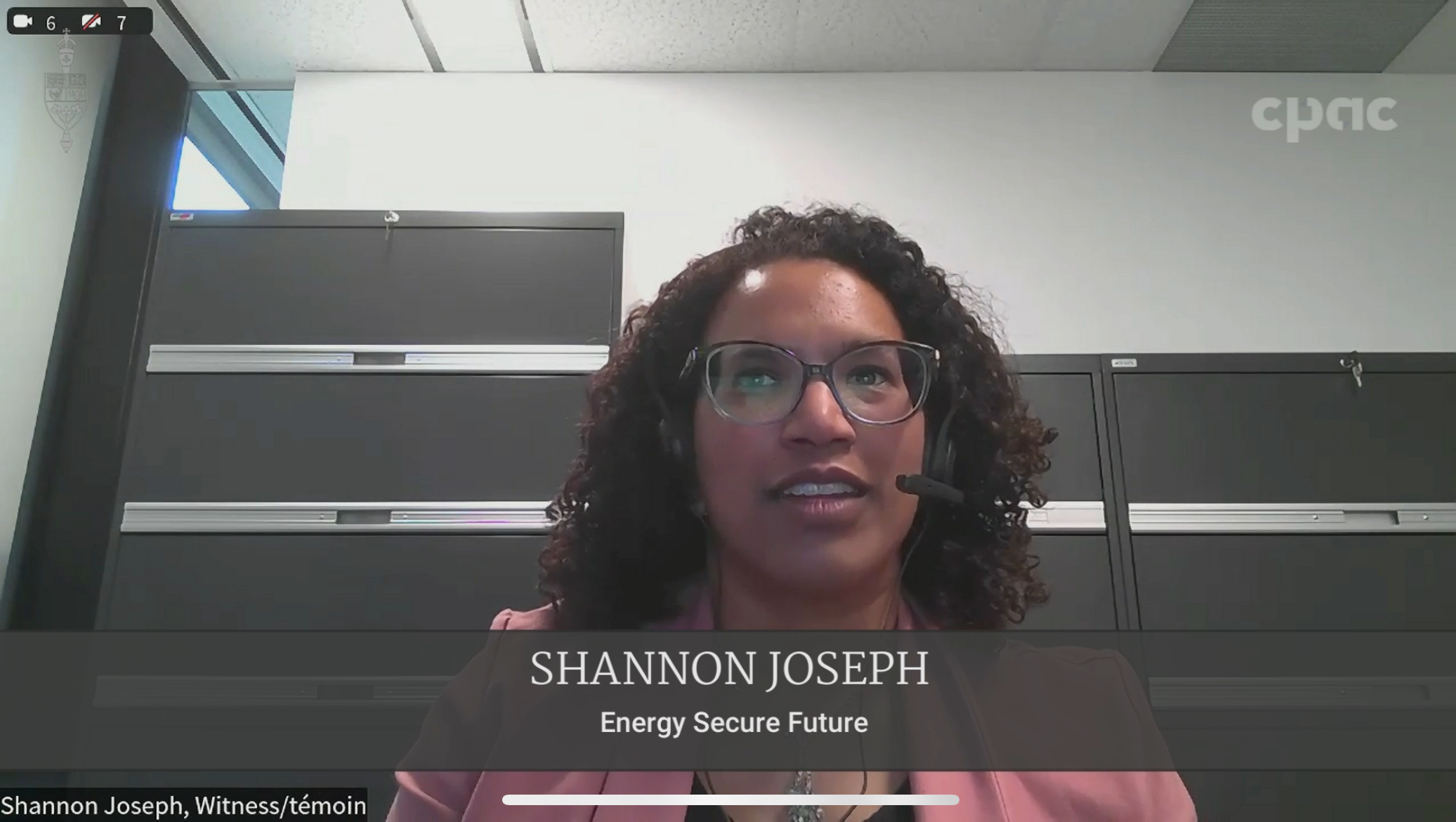On May 27, 2024, Energy for a Secure Future Chair, Shannon Joseph presented to the House of Commons Special Committee on the Canada-People’s Republic of China Relationship.
She highlighted the importance of energy security, one of the top priorities for our allies, environmental performance and the role of Canadian LNG along with economic growth for Canada, as foundational to Canada’s Indo-Pacific Strategy.
Watch the Full Remarks
Energy for a Secure Future or ESF is an initiative focused on building a new conversation about the future of energy in Canada and our potential global role in supporting our international allies with energy security and sustainable development. Our national network includes unions, Indigenous leaders, farmers, mayors, industry leaders and others who share a vision for this role for Canada.
I would like to propose three themes for the committee to consider as foundational to Canada’s Indo-Pacific Strategy:
1. Energy security – a top priority for our allies.
2. Environmental performance – and the role of Canadian LNG.
3. Economic growth – for our own country.
On Energy Security
Since our founding in early 2023, ESF has produced two discussion papers related to our potential global energy role – one focused on (1) how Indigenous peoples in Canada are shaping a more secure energy future and the other (2) on the value proposition of Canada’s LNG export opportunities. Following from the launch of these papers ESF has engaged with members of the diplomatic community in Canada. This includes Ambassadors or Consuls General of our G7 Allies as well as key G-20 partners, including India and South Korea.
What we have heard is that many of our Indo-Pacific Allies continue to rely on energy from Russia, despite their desire for alternatives. All see the potential reliable supply of Canadian liquefied natural gas (LNG) as beneficial to their long-term objectives around energy security and democratic cooperation.
Here are some figures to consider:
– Two-thirds of South Korea’s electricity generation is provided by fossil fuels of which nearly 98 percent are imported. Coal represents 40% of that electricity generation of which 81% is imported from Russia.
– India is the third largest energy consumer in the world gets roughly three quarters of its primary energy from coal, petroleum and natural gas. In the past two years India has increased its imports of price-discounted Russian energy. What we have been told is that buying LNG from Canada is desirable and would be lower cost than many alternatives, including the US.
– This Committee has already heard from Japan’s Ambassador on this subject – they too see important value in Canadian LNG from an energy security standpoint.
Today, Canada is not a global security player – we are excluded from major initiatives including the Indo-Pacific Economic Framework for Prosperity (IPEF), AUKUS, and the Quadrilateral Security Dialogue (the QUAD).
If Canada truly seeks to be a player and strategic ally in the Indo-Pacific, energy is our most potent card, and it is vital that we listen to our friends in the region when they describe their needs and priorities.
On Environmental Performance:
Canada’s climate change objectives – specifically our Paris Target1 – are often given as a reason why our oil and gas production should not grow, our farmers must use less fertilizer, and our domestic manufacturers must bear high energy and carbon costs.
While responsive to the Paris Agreement, this target does not move the needle on global emissions – which is the meaningful goal. Papers by the Canadian Chamber of Commerce, the National Bank of Canada and others have highlighted the important environmental role of increased LNG exports from Canada:
– The Chamber’s paper highlights that displacing 20% of Asia’s coal-fired electricity with Canadian LNG would reduce emissions by more than Canada’s total emission in 2021, annually.
– Analysis from National Bank of Canada show that if Canadian LNG were an alternative to India’s current plans to double coal production by 2030, the equivalent more than 3.5 times2 Canada’s total 2021 GHG emissions, would be reduced annually.
– In ESF’s own report – Robert Johnston of Columbia University’s Centre on Global Energy Policy remarks “Getting Canadian LNG into growing Asian markets to displace coal and backstop renewables is aligned with Canadian environmental and economic goals but needs to be a priority for all levels of government if it is going to happen.”
This leads me to my third theme – domestic Economic Growth:
– An effective Indo-Pacific Strategy means more high-income jobs for Canadian workers. Earlier this year, I, along-side our partners in Canada’s Building Trades, met with the Federal Labour Minister to convey the importance of LNG jobs to Canadian workers. These are some of the biggest job contracts in the country – and these jobs underpin social mobility in Canada.
– Indigenous nations are owners and partners in the export facilities, pipelines and upstream gas production of Canadian LNG. Our role as an LNG player will meaningfully advance reconciliation for these nations and this matters.
– Finally, if we want to address the productivity and investment gap in Canada – which many, have highlighted – then we need to be a place where things get done. Showing focus and commitment in our approach to the Indo-Pacific and delivering for our allies, can a be key part of this demonstration.
Thank you.
